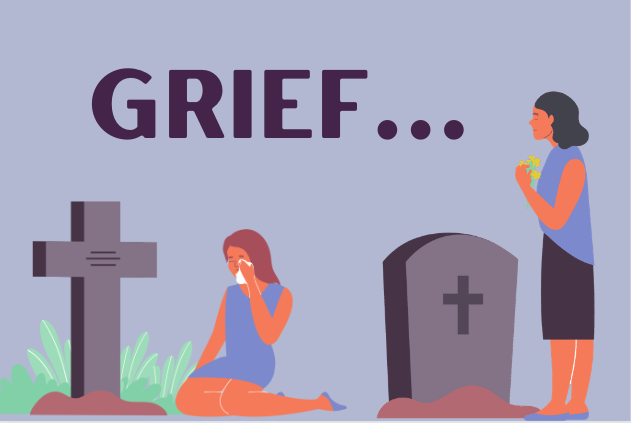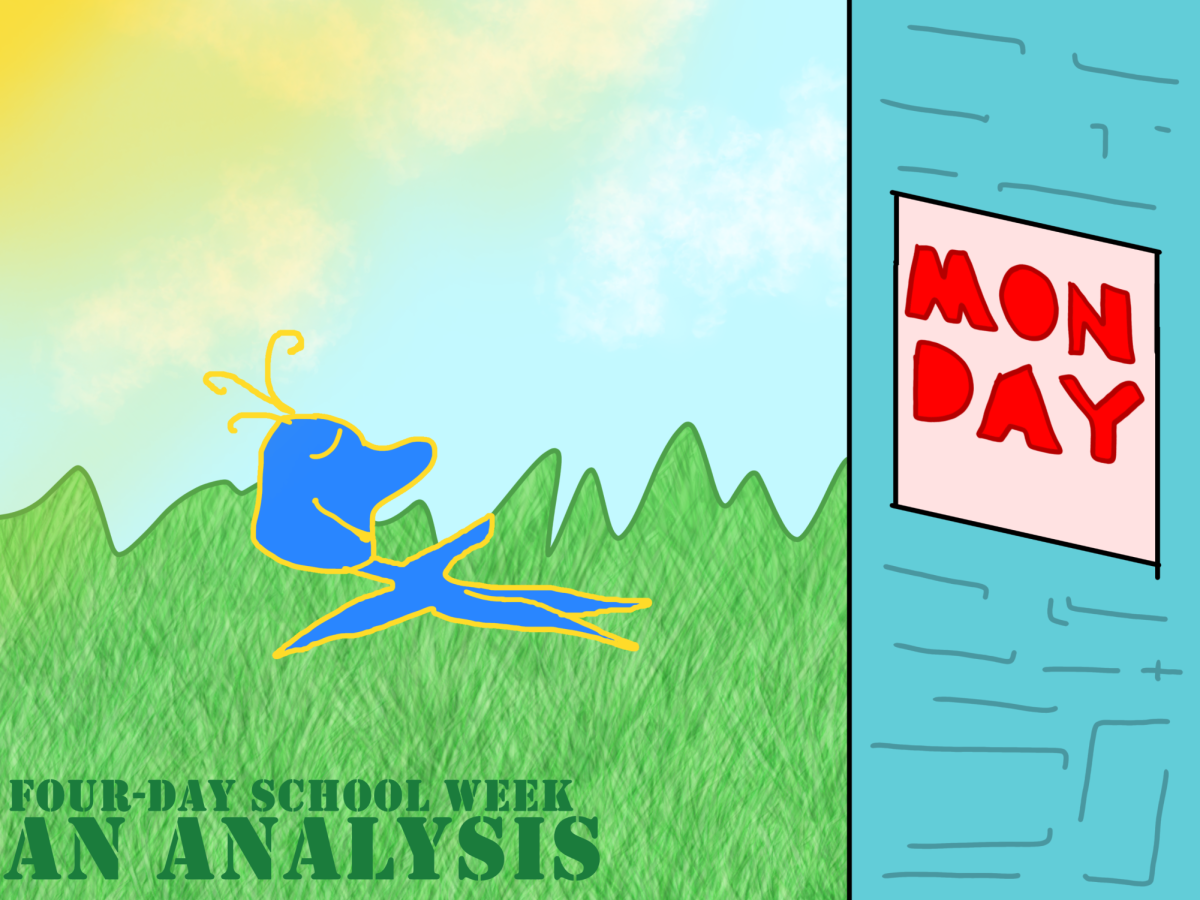The Thing About Grief…
Shedding Light on the Darkness that is Grief as an Emotion
Grief Graphic
December 8, 2022
Grief is a complicated thing, yet it’s one of the most common experiences across all walks of life. Grief is the natural reaction to loss and is one of the few things that is both universal and personal. Individual experiences of grief vary and are influenced by the nature of the loss at hand. Some examples of loss may include the death of a loved one, an unborn child, the ending of an important relationship, job loss, loss through theft or the loss of independence through disability.
Grief can come out of nowhere and hit your heart with an insurmountable force. But it can also be slow-burning, weighing one down emotionally like sand bags. When grieving, it can feel like the world around you is coming to an ultimate end, causing a negative tunnel vision. It can feel nearly impossible to climb your way out of the pit of wallowing, but the journey is indeed possible and so worth it.
This expedition back towards normalcy is exceedingly unique for each their own, as the way we cope may contrast to that of our peers. ThirdAGE, a premier health and wellness site found that “many find a great deal of comfort in visiting the gravesites or memorial sites of their departed loved ones…Some visit to experience quiet reflection and to feel connected to their beloved, while others invite friends for picnics, remembrances or ‘mini-celebrations’.” It is clear that visiting the gravesite of a loved one can bring a large measure of peace and consolation to those coping with the pain of loss, but this does not make it the sole tactic for working through grief.
According to the Mayo Clinic, “Mourning can last for months or years. Generally, pain is tempered as time passes and as the bereaved adapts to life without a loved one, to the news of a terminal diagnosis, or to the realization that someone they love may die.”
Grieving is an undefinable topic, and completely conceptual. The five stages of grief, denial, anger, bargaining, depression, and acceptance, come in many forms and follow many timelines. It is important to realize that the way someone you know grieves may be wholly divergent from your own methods. Humans are idiosyncratic creatures. We are diverse in our loves, likes, dislikes, race, culture, and even within cultures.
“We have to be open to people being very different from what we expect in their grieving — but they may hide it if we’re going to be judgy,” Dr. Paul Rosenblatt, a professor emeritus of family social science at the University of Minnesota, told The New York Times.
It is crucial to understand that there is no right or wrong way to grieve. The effects and actions someone takes to combat the physical and psychological effects of loss are as unique as we are, and it is not anyone’s place to act as “the grief police.”
When someone you know is in grief, your words and behavior have a heightened impact, for they are in a vulnerable place. Assessing the connotations and tone behind your statements and working to understand why they’re suffering can help, as can talking to others and trying to resolve issues that are causing the emotional pain. Finding within yourself the empathy for the griever will support them in more ways than one, even if as a patron, you cannot understand why they are upset.
Avoid questions or phrases that place blame onto the individual in grief. It is not their fault they feel a certain way, just as it is not their fault that they had a loss occur. Reminding them of this can be beneficial, but one of the best ways to support someone is simply to listen. Have forbearance and respect for their words if they are wishing to talk. Your conversation does not have to revolve solely around their personal grief either; smalltalk and distraction can help incorporate small moments of joy back into their life. It’s really that simple.
If perhaps you are the griever, remind yourself that “there is always a greater grief. You can acknowledge the rich history of human sadness and still mourn your own loss. You can lean on the ones you love; you can turn to poetry; you can seek professional help if you need it,” Dr. Klass, a professor of journalism and pediatrics at New York University advised.
Perhaps there is even some comfort to glean from our natural tendency to assess the grief of others, to pick apart what a loss is and what it should be. When we as a species observe, judge, and “parse the narratives of others,” we are acting on instinct. It can seem unnatural and outright wrong to mind one another’s business, but that is a part of being human. We love to magistrate, chastise, and argue that our way is the right way, but grieving is not linear. Its path is skewed, bumpy, and with an infinite number of turns in every direction.
The best advice I can give, after grieving the death of a number of loved ones throughout my life, is to be patient. Be patient with yourself; be patient with others; be patient with the process. Grief and patience are the ultimate confidantes.
















